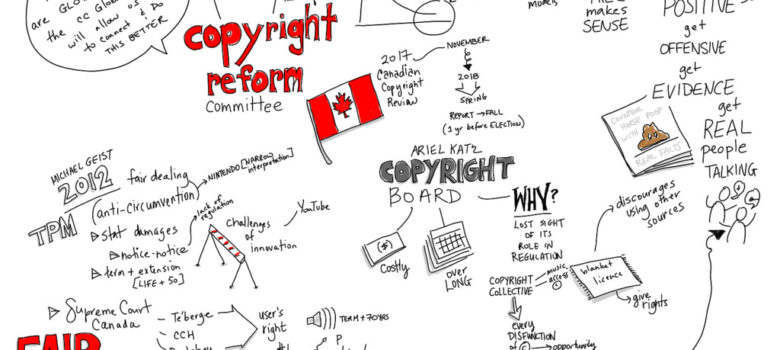Earlier this year, I wrote about lobbying pressure to “harmonize” statutory damages for copyright collectives. Access Copyright, which supported the measure, argued that the massive escalation in potential damage awards were needed for three reasons: deterrence, promotion of settlement negotiations, and efficient use of court resources. Yet as I argued in this post, none of the arguments rang true.
After months of internal wrangling, the government unveiled its proposed reforms to the Copyright Board yesterday as part of Bill C-86, its Budget Implementation Act. The bill contains many changes requested by copyright stakeholders. With respect to the statutory damages provisions, however, it has rightly left the statutory damages distinction between certain collectives in place, meaning that Access Copyright will not be able to rely on statutory damages for non-payment of tariffs, relying instead on actual damages (if any).
The issue will still be hotly debated as part of the copyright review, but the government was right to reject the collective’s demand, effectively acknowledging that the copyright review is the appropriate place for discussion of statutory damages, not within a package of administrative and governance reforms to the board. In fact, the government similarly left the limit of $100 in royalties for the first $1.25 million in advertising revenue for radio stations in place, despite ongoing lobbying from the music industry for it to be eliminated.
The proposed changes to the Copyright Board are extensive and will require considerable study. In the meantime, it is worth noting that they include a much-overdue policy provision establishing objectives for the royalty rates set by the board. Those objectives include a requirement to consider the public interest, which critics have argued has often been missing from board analysis. The government’s identification of the public interest is instructive as it should also be a guiding principle for the copyright review and subsequent proposed reforms.








Pingback: Taking on the Trolls: Canadian Government To Regulate Patent Demand Letters - Michael Geist
Pingback: This Week’s [in]Security – Issue 84 - Control Gap | Control Gap
Hi it’s me, I am also visiting this site on a regular basis, this web site is really good and the visitors are truly
sharing pleasant thoughts.